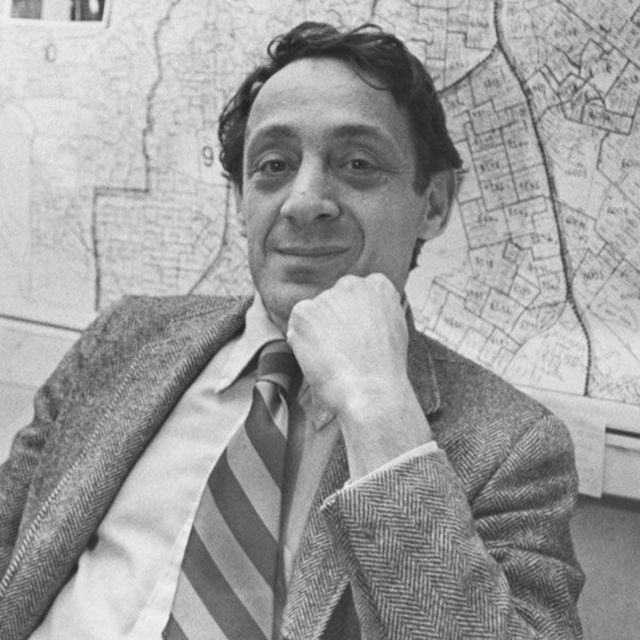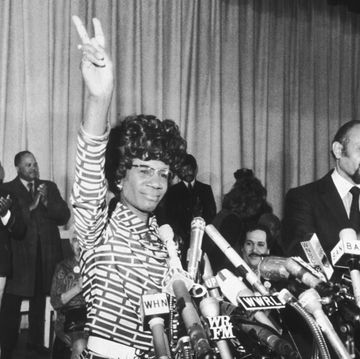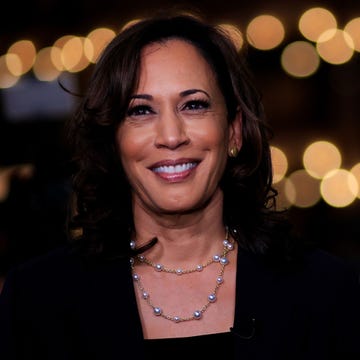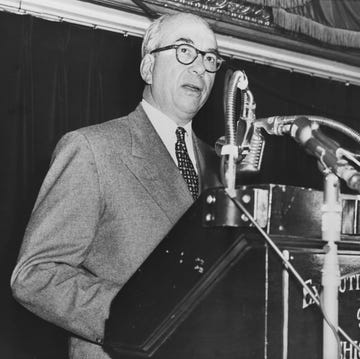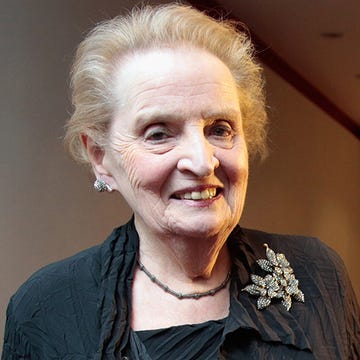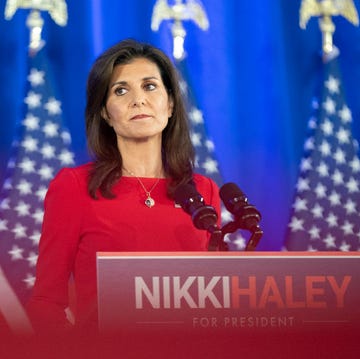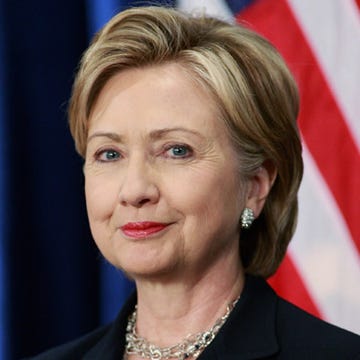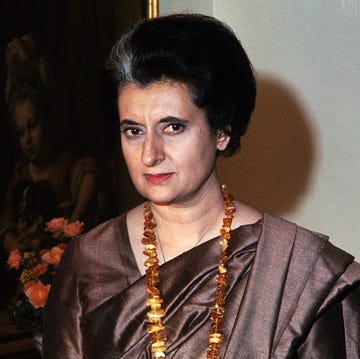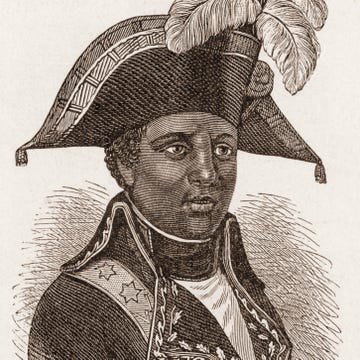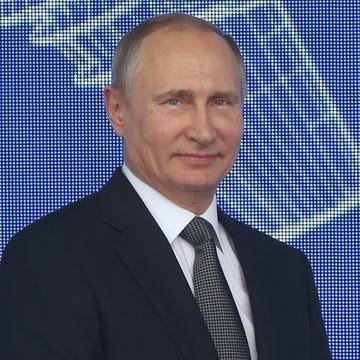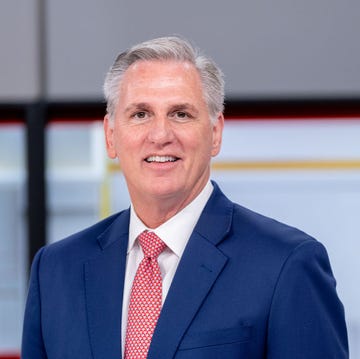(1930-1978)
Who Was Harvey Milk?
Gay rights activist and community leader Harvey Milk made history when he became one of the first openly gay officials in the United States in 1977 when he was elected to San Francisco's Board of Supervisors. He was tragically shot and killed the following year, and numerous books and films have been made about his life.
Early Years
Milk was born on May 22, 1930, in Woodmere, New York. Reared in a small middle-class Jewish family, Milk was one of two boys born to William and Minerva Milk. A well-rounded, well-liked student, Milk played football and sang in the opera at Bay Shore High School. Like his brother, Robert, he also worked at the family department store, Milk's.
After graduating from the New York State College for Teachers in 1951, Milk joined the U.S. Navy, ultimately serving as a diving instructor at a base in San Diego, California, during the Korean War. Following his discharge in 1955, Milk moved to New York City, where he worked a variety of jobs, including public school teacher, production associate for several high-profile Broadway musicals, stock analyst and Wall Street investment banker. He soon tired of finance, though, and befriended gay radicals who frequented Greenwich Village.
New Life in San Francisco
In late 1972, bored with his life in New York, Milk moved to San Francisco, California. There, he opened a camera shop called Castro Camera on Castro Street, putting his life and work right in the heart of the city's gay community.
For much of his life, Milk had stayed quiet about his personal life. He had known since high school that he was gay, and even in the wake of an emerging gay rights movement, the deliberate and careful Milk chose to remain on the sidelines. But things had started to turn for him toward the end of his time in New York, as he befriended a number of gay radicals who frequented Greenwich Village.
In San Francisco, his life and outspoken politics evolved even further. As Castro Camera increasingly became a neighborhood center, Milk found his voice as a leader and activist. In 1973, he declared his candidacy for a position on the San Francisco Board of Supervisors. A novice politician with little money, Milk lost the election, but the experience did not deter him from trying again. Two years later, he narrowly lost a second election for the same seat. By then, Milk had become a political force—an outspoken leader in the gay community with political connections that included San Francisco mayor George Moscone, Assembly speaker and future city mayor Willie Brown and future United States senator Dianne Feinstein.
In 1977, Milk, who was known affectionately as the "Mayor of Castro Street," finally won a seat on the San Francisco City-County Board. He was inaugurated on January 9, 1978, becoming the city's first openly gay officer, as well as one of the first openly gay individuals to be elected to office in the United States.
While his campaign certainly incorporated gay rights into his platform, Milk also wanted to tackle a wide variety of issues, from childcare to housing to a civilian police review board.
Assassination
Milk's ascension had come at an important time for the gay community. While many psychiatrists still considered homosexuality a mental illness at this time, the liberal Moscone had become an early supporter of gay rights and had abolished the city's anti-sodomy law. Moscone had also appointed several gays and lesbians to a number of high-profile positions within San Francisco.
On the other side of Moscone was Supervisor Dan White, a Vietnam veteran and former police officer and fireman, who was troubled by what he perceived as a breakdown in traditional values and a growing tolerance of homosexuality. Elected to the San Francisco City-County Board in 1977, he frequently clashed with the more liberal Milk on policy issues.
A year after his election, in 1978, White resigned from the board, citing that his salary of $9,600 wasn't enough to support his family. But White was prodded on by his police supporters and subsequently changed his mind regarding his resignation and asked Moscone to reappoint him. The mayor refused, however, encouraged by Milk and others to fill White's spot with a more liberal board member. For White, who was convinced that men like Moscone and Milk were driving his city "downhill," it was a devastating blow.
On November 27, 1978, White entered City Hall with a loaded .38 revolver. He avoided the metal detectors by entering through a basement window that had been negligently left open for ventilation. His first stop was at the mayor's office, where he and Moscone began arguing, eventually moving to a private room so that they could not be heard. Once there, Moscone again refused to re-appoint White, and White shot the mayor twice in the chest and twice in the head. White then went down the corridor and shot Milk, twice in the chest, once in the back and twice again in the head. Soon after, he turned himself in at the police station where he used to work.
Dan White's Trial
White's trial was marked by what came to be known as the "Twinkie defense," as his lawyers claimed that the normally stable White had grown slovenly prior to the shootings due to abandoning his usually healthy diet and instead indulging in sugary junk food such as Coke, doughnuts and Twinkies. In a surprising move, a jury convicted White of voluntary manslaughter rather than murder, and White would subsequently serve just six years in prison. In 1985, a year after his release, a distressed White committed suicide.
As a result of White's downgraded conviction, peaceful demonstrations by Castro's gay community outside City Hall turned violent. More than 5,000 policemen responded by entering nightclubs armed with truncheons and assaulting patrons. By the riot's end, 124 people were injured, including 59 policemen. This episode is known in history as "The White Night Riots."
Movie
In the years since the killings, Milk's legacy as a leader and pioneer has endured, with numerous books and films made about his life. In 2008, Sean Penn starred as Milk in the acclaimed biopic Milk. Penn ended up winning the 2009 Academy Award for best actor for his portrayal of the slain politician.
U.S. Navy Ship
In July 2016, the U.S. Navy announced it would be naming a yet-to-be constructed tanker after Milk in his honor. The ship would be called the USNS Harvey Milk.
Milk's nephew praised the decision, saying it would send "a green light to all the brave men and women who serve our nation: that honesty and authenticity are held up among the highest ideals of of nation's military".
San Francisco politician Scott Wiener also celebrated the announcement. "When Harvey Milk served in the military, he couldn't tell anyone who he truly was," he wrote in a statement. "Now our country is telling the men and women who serve, and the entire world, that we honor and support people for who they are."
However, some critics argue that Milk would not have wanted such an honor, citing Milk was opposed to the Vietnam War.
QUICK FACTS
- Name: Harvey Milk
- Birth Year: 1930
- Birth date: May 22, 1930
- Birth State: New York
- Birth City: Woodmere
- Birth Country: United States
- Gender: Male
- Best Known For: Harvey Milk became one of the first openly gay officials in the United States in 1977 when he was elected to the San Francisco Board of Supervisors. Tragically, he was killed the following year.
- Industries
- U.S. Politics
- Astrological Sign: Gemini
- Schools
- Bay Shore High School
- New York State College for Teachers in Albany
- Death Year: 1978
- Death date: November 27, 1978
- Death State: California
- Death City: San Francisco
- Death Country: United States
Fact Check
We strive for accuracy and fairness.If you see something that doesn't look right,contact us!
CITATION INFORMATION
- Article Title: Harvey Milk Biography
- Author: Biography.com Editors
- Website Name: The Biography.com website
- Url: https://www.biography.com/political-figures/harvey-milk
- Access Date:
- Publisher: A&E; Television Networks
- Last Updated: April 20, 2021
- Original Published Date: April 2, 2014
QUOTES
- All men are created equal. No matter how hard you try, you can never erase those words.
- Hope will never be silent.
- I know that you cannot live on hope alone, but without it, life is not worth living.
